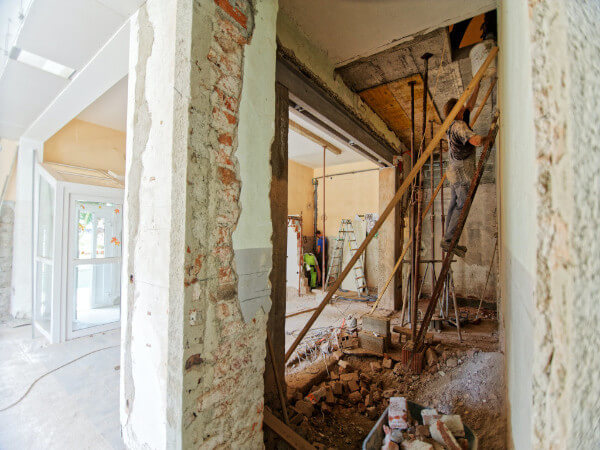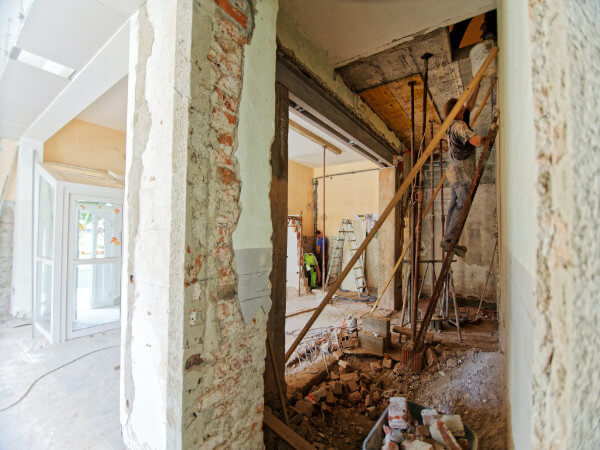
As the end of 2021 fast approaches, we have begun to look back on another challenging – but exciting – 12 months in construction.
At the end of the most disruptive year on record – 2020- we knew there would be challenges and changes ahead. The lasting effects of the Covid-19 pandemic continued to make its mark on the world over, but the news and rollout of vaccination programmes brought us much needed hope. And with the continuing impacts of Brexit, climate change and skills and labour shortages, there is no doubt that construction firms were keeping their resiliency plans firmly at the front of their minds.
However, it’s safe to say that we again couldn’t have predicted the long-term impact of Covid-19 on our sector with further lockdowns across much of Europe as we entered 2021 which not only halted productivity and project progress but also contributed to a global materials shortages.
As ever, many businesses, technology has remained mission-critical but the way in which companies are adopting to this is bringing back some clear competitive differences across the market. We’ve brought together experts from our Autodesk Construction Solutions (ACS) team in Europe and the Middle East to share their thoughts on the year we’ve had and what we’ve learned.
Digital plans evolving from survival mode to long-term business strategies
For many construction companies in 2020, digital ways of working were forced upon them to keep afloat. Investment in solutions to keep operations moving in such uncertainty become a necessity and companies with long-term digital strategies were able to keep focused and in places, accelerate their goals.
District Manager for DACH, France and Spain Marvin Theissen reflects; “A Common data environment is always key in effective collaboration when it comes to remote working, and many companies recognised this in 2021. Despite this, 2021 also demonstrated that layering product and solutions on top of each other without a clear strategy can lead to systems fatigue for end-users.”
But as Nordics District Manager Nicholas Klokholm explains, “Companies are becoming more sophisticated in their needs and their employees expect this. Project teams want to work more holistically rather than using point solutions, and this will enable them to capture and use their data for better insights.”
New ways of working creating competitive advantages
When it comes to the marketplace, owners and main contractors also expect to experience a more streamlined digital experience when it comes to viewing and collaborating on their projects. Data that is captured in one place and used to provide richer insights can help decision-makers on projects.
Sander Lijbers, District Manager at Autodesk for Benelux says, “2021 was the year for refining and improving the use of technology. Companies that did this and could demonstrate it had a competitive edge when it came to bidding for work in our industry. Having a central source of truth shows project owners that risk and uncertainty are being addressed and reduced which is some of their biggest concerns.”
Shortages in materials and labour leading to skills in demand
The materials shortages that plagued the industry for much of 2021 is unfortunately here to stay. As cost of materials skyrocket and delays seep into schedules, a focus on skills in the industry emerged. For Europe, the major effects of Brexit are starting to impact the labour market. Demand for construction workers across the UK steadily increased throughout 2021 as migration over Europe changed in light of new Brexit legislation.
According to Account Executive for UK & Ireland Brian Roche, the demand on skills led to project pressures and more competition within the market. “Employees expect to work more flexibly in line with other industries. The rise of remote working in 2020 showed us that collaboration can continue regardless of your geographical location with the right tools to support you, and this will be a decision-making factor as skilled workers look for roles within the industry.” Firms working with paper-based and manual processes run the risk of being left behind when it comes to attracting and retaining top talent.
Senior Customer Success Manager in the Middle East, Mohammad Abou Assali recognises that now more than ever, the workforce is looking closely at the mission and values of companies ensuring they align to their own. “In both 2020 and 2021, key issues in the world really came to the forefront. And the time to respond and make change is now. The construction workforce is increasingly aware of their own priorities and want to see more from the industry when it comes to reducing our carbon footprint, so companies need to show their own commitment and advancements towards changing for the better. If they don’t, they risk losing out.”
People remain at the heart of the construction industry
Despite great progress in digitising and modernising the construction industry for the better, people will forever remain at the heart of the industry. Regardless of the technology being deployed or workflows established, people and their experience must be placed at the centre of any change. As District Manager Nicholas Klokholm says, “Change is difficult, and it doesn’t just happen. Data needs to be the enabler for all that we do in this industry and it is the driver for change.” For Sander Lijbers, District Manager for Benelux, 2021 was the year for preparing for the future; “Getting your own organisation in order was a key priority in 2021 and if you didn’t do that then 2022 is the time to do it – this way you’ll be ready for what is to come next.”
The post 2021 in Review: Europe and the Middle East’s Year in Construction appeared first on Digital Builder.
Did you miss our previous article…
https://www.clarkeconstructioncreations.com/?p=1807



























